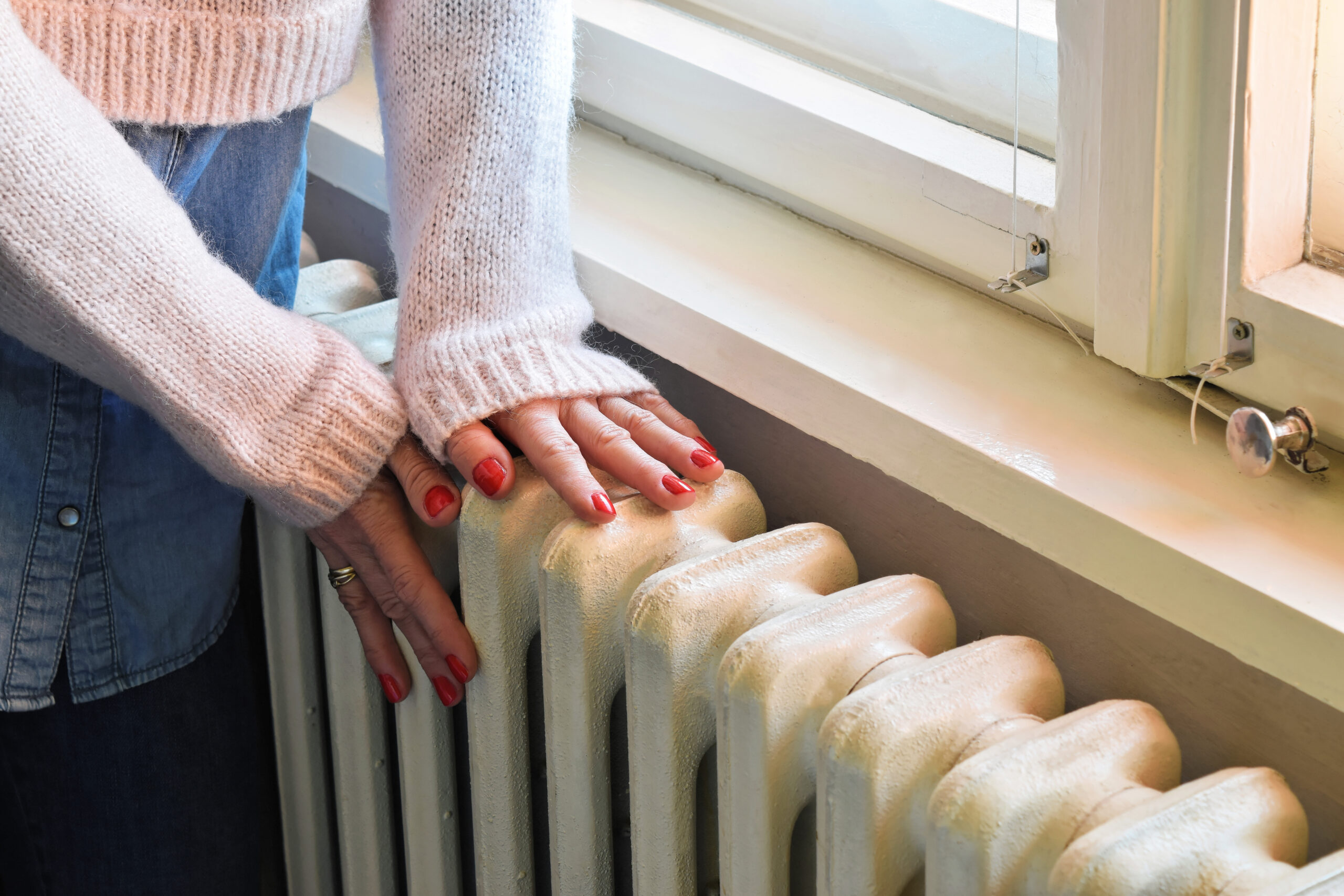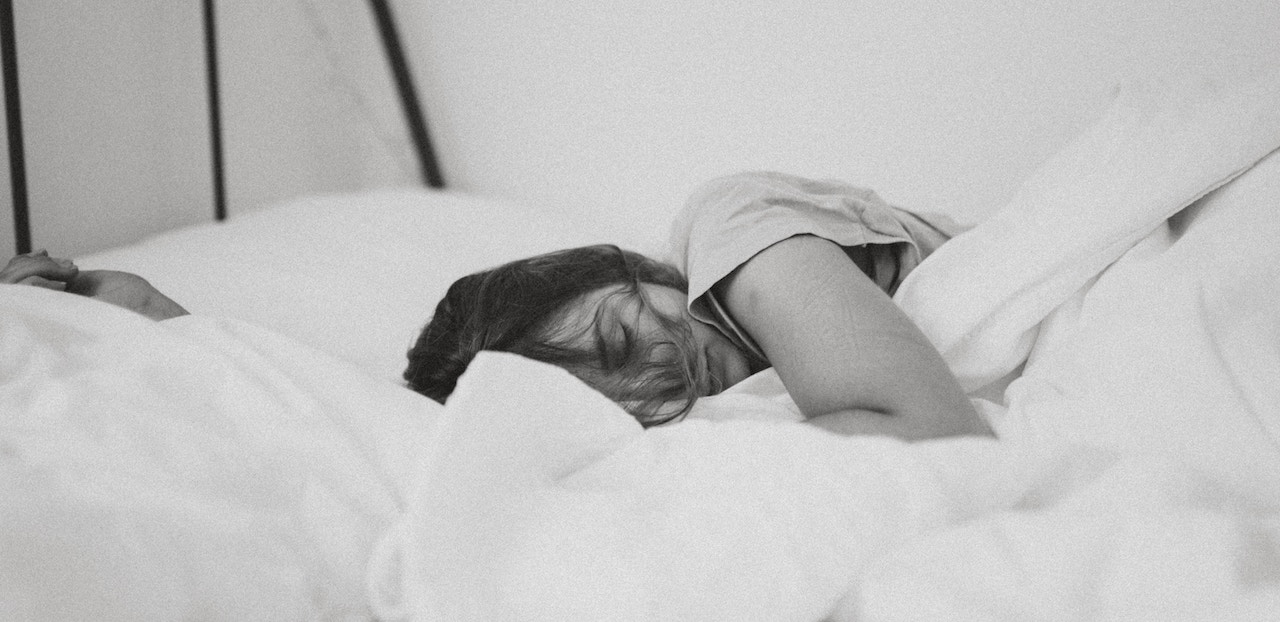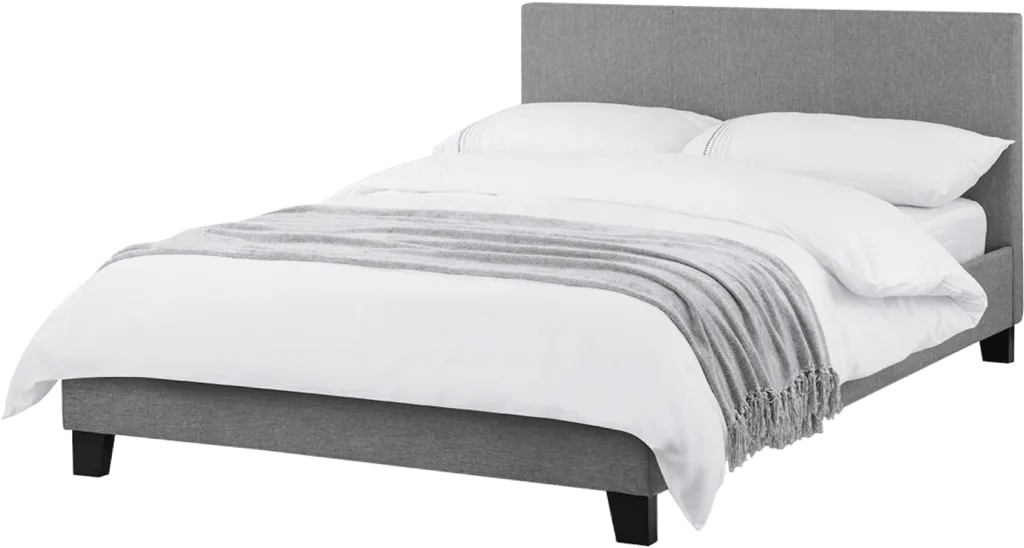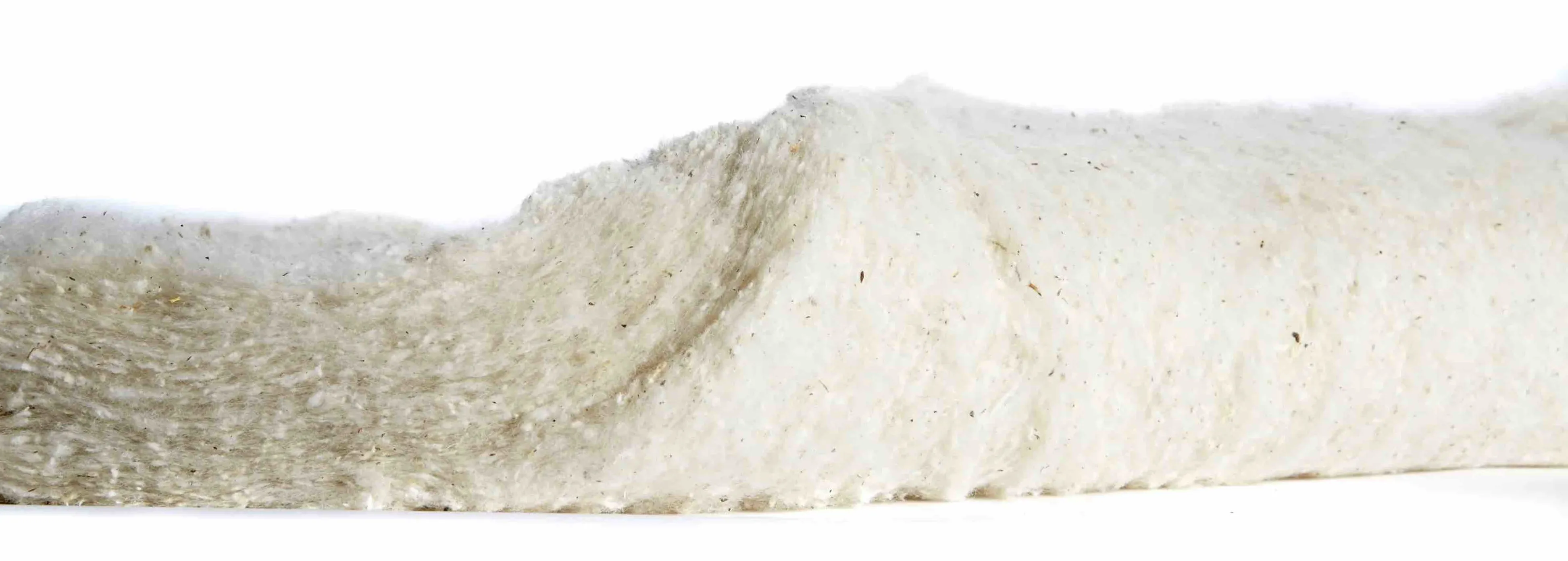Why Are My Feet Cold and Sweaty in Bed? Understanding the Causes
There’s nothing more uncomfortable and offputting in bed than cold, sweaty feet. At John Ryan By Design, we’ve yet to hear in our 30 years of mattress making of a bedtime partner relishing the feeling of someone’s cold, damp feet rubbing against theirs at night. For most people, sweaty feet in bed are a real turn-off.

With that in mind, this sleep blog will delve into the various factors contributing to this sweaty feet phenomenon. We, the sleep experts, will be exploring both the physiological and environmental bedtime reasons behind cold and sweaty feet in bed.
What causes sweaty feet in bed?
Sweaty feet in bed are not just caused by central heating, synthetic heat retentive bedding or wearing thick socks when sleeping. There are a number of reasons why your feet may start to sweat when sleeping, from poor circulation, hyperhidrosis, and hormones to struggling with sleep anxiety. It’s important to find out which cause may affect your sleep to help rid yourself of sweaty feet for a drier night’s sleep.
Let’s do a deep dive into the various reasons why you may struggle with sweaty feet and how to stop them!
1. Poor Circulation & Sweaty Feet
One of the primary reasons for cold feet in bed is poor circulation.
Poor circulation can contribute to cold and sweaty feet in bed. Circulation refers to blood movement through the body, delivering oxygen and nutrients to tissues while removing waste products. When circulation is compromised for whatever medical reason, blood flow to the extremities, such as the feet, may be reduced, leading to sensations of coldness and clamminess.

This is especially true at night when your heart rate slows down for sleep. Between 40 to 50 bpm (beats per minute) is considered an average sleeping heart rate for adults. Compared to a daytime rate of 60-1oo bpm.
Several factors can contribute to poor circulation during the night. Let’s discuss each of them to try and identify if any of these apply to you.
i) Peripheral Artery Disease (PAD)
PAD occurs when arteries become narrowed or blocked by plaque buildup, restricting blood flow to the legs and feet. Symptoms include cold feet, numbness, and muscle cramps, particularly during physical activity or lying down. If you think you may suffer from this, always seek medical advice for treatments.
ii) Raynaud’s Disease
Raynaud’s disease is a condition characterized by exaggerated blood vessel constriction in response to cold temperatures or stress, leading to reduced blood flow to the extremities. This can result in cold, pale, and sweaty feet, especially at night or during periods of stress.

iii) Diabetes
Diabetes can damage blood vessels and nerves, impairing circulation to the feet and increasing the risk of peripheral neuropathy. Individuals with diabetes may experience cold, sweaty feet due to poor circulation and nerve damage. Always check with a doctor if you believe you may be suffering from type 1 or type 2 diabetes. Symptoms often include increased thirst, tiredness and lethargy.
iv) Peripheral Neuropathy
Peripheral neuropathy refers to nerve damage that can result from conditions such as diabetes, autoimmune disorders, or infections. Neuropathy can disrupt the body’s ability to regulate temperature and blood flow to the feet, leading to sensations of coldness and excessive sweating.
v) Sedentary Lifestyle
This is a big one for anyone stuck at a desk all day or working in an office. Lack of physical activity can contribute to poor circulation, as regular movement helps stimulate blood flow and prevent blood from pooling in the extremities. Sitting or lying in one position for extended periods can impede circulation and contribute to cold, sweaty feet.
vi) Smoking
Another no-no if you have cold, sweaty feet is smoking. If you’re a smoker, it could be the cigarettes causing the foot issues in the bedroom. Smoking can constrict blood vessels and reduce circulation, exacerbating symptoms of poor circulation in the feet. Quitting smoking can improve circulation and alleviate cold and sweaty feet over time.

vii) Obesity
Excess weight can put added pressure on blood vessels and impede circulation, particularly in the lower extremities. Maintaining a healthy weight through diet and exercise can help improve circulation and reduce symptoms of cold and sweaty feet.
2. Temperature Regulation in Bed
The body naturally regulates its temperature during sleep, and sometimes, the feet may sweat excessively as a response to overheating. This can occur when the ambient temperature in the bedroom is too warm or when using heavy blankets or bedding that traps heat, especially man-made fibres like polyester, causing the feet to sweat excessively.
This is why we always recommend turning off your central heating in the bedroom each night and opting for breathable natural fibre bedding, which can better regulate temperatures.
Memory foam mattresses are also a no-no if you suffer from sweaty feet. This is because memory foam or Vasco elastic foam retains and traps heat, which helps it mould to your body shape. Unfortunately, this makes it the least breathable mattress type, so if you already suffer from clammy or sweaty feet, then a memory foam mattress will simply make it worse.
The best natural fibres for bedding are listed below, with their breathability and price point. It’s always worthwhile trying to invest in both your mattress materials and bedding for a cooler, deeper sleep. If you want to discover the essentials needed to choose the perfect mattress, our mattress buying guide here is a great place to start.
| Natural fibre | Breathability/Temperature Regulation |
|---|---|
| Bamboo | High / Excellent |
| Cashmere | High / Excellent |
| Cotton | Medium / Excellent |
| Silk | Medium / Medium |
| Wool | High / Excellent |
3. Stress & Bedtime Anxiety
Stress and anxiety can also contribute to cold and sweaty feet in bed. The body’s stress response triggers the release of hormones like adrenaline, which can lead to increased perspiration and changes in blood flow, including to the feet. This can manifest as cold, clammy feet, particularly during times of heightened stress or anxiety.
If you have work on your mind before bed or any drama constantly running through your thoughts, this can lead to subconscious sweating during the night. Tackling what is causing the anxiety is key, and then finding suitable methods of reducing or managing it can help improve your sleep drastically.


4. Hormonal Changes & Sweaty Feet
Hormonal fluctuations, such as those experienced during menopause or pregnancy, can affect the body’s thermoregulatory mechanisms, leading to temperature dysregulation and sweaty feet in bed. Hormonal imbalances can cause hot flashes and night sweats, which may exacerbate foot sweatiness and discomfort.
If you have suddenly developed night sweats, waking up with hot flushes or sweaty feet, then it may be worthwhile checking with your doctor if there is a hormone imbalance at play.
5. Poor Sleep Hygiene
Sleep hygiene is the hidden secret of all deep sleepers and people who achieve the golden ’40 winks’ ratio of 7-9 hours of sleep each night. When we speak to people who manage to deep sleep and sync up with their circadian rhythms and REM cycles, they all practice good sleep hygiene.
Sleep hygiene is a series of steps taken before bedtime, usually to a consistent routine each night that helps the body and mind drift off quickly to sleep—resulting in deeper, more restorative sleep and better overall health as a result.
Inadequate sleep hygiene practices, such as wearing polyester (non-breathable) socks to bed or using non-breathable footwear in the day, such as a trainer, can trap moisture and heat around the feet, leading to excessive sweating and discomfort. Sleeping in tight or constrictive pyjamas can cause issues by restricting blood flow and contributing to cold feet.
6. Medical Conditions
Medical conditions can play a significant role in causing sweaty feet, a condition medically known as plantar hyperhidrosis.
Plantar hyperhidrosis is a medical condition characterized by excessive sweating of the feet. It is a type of hyperhidrosis, which refers to abnormal and uncontrollable sweating beyond what is necessary for thermoregulation. Plantar hyperhidrosis specifically affects the soles of the feet, leading to profuse sweating that can be socially embarrassing and uncomfortable, especially in bed with a partner.

Sleepers with plantar hyperhidrosis may experience sweating disproportionate to the environmental temperature or their bedroom or mattress. The condition can occur episodically or persistently and may be exacerbated by factors such as stress, anxiety, and certain triggers like warm weather or winter bedding.
There are two other main causes of plantar hyperhidrosis; let’s briefly examine what secondary medical conditions may cause excessive sweaty feet.
i) Hyperthyroidism
Hyperthyroidism occurs when the thyroid gland produces an excess of thyroid hormones, leading to an overactive metabolism. Sweaty feet can be a symptom of hyperthyroidism, as the condition can increase the body’s overall sweat production.
ii) Infections
Fungal and bacterial infections of the feet, such as athlete’s foot (Tinea pedis) and foot odour-causing bacteria, can contribute to sweaty feet. These infections thrive in warm, moist environments, making sweaty feet a conducive breeding ground. Treating the underlying infection is essential to alleviate symptoms of sweaty feet. Keeping your feet clean and wearing breathable socks is key.
How to Stop Cold & Sweaty Feet in Bed
We’ve discussed what may cause your feet to sweat and become clammy at night in the bedroom, and now it’s time to discuss the top tips to help reduce or even stop excess foot sweating. So you and potential partners can get a more comfortable night’s sleep.
A) Maintain a Comfortable Bedroom Temperature
This means keeping your bedroom temperature between 16-18 degrees Celsius each night and allowing adequate airflow each morning to keep the room fresh. We advise against air conditioning, which dries the air too much, or central heating, which can cause extreme body temperature fluctuations at night.
Ensuring proper bedroom ventilation is also often overlooked. Ventilation helps to prevent overheating and is key to reducing sweaty feet. Sleeping with a window open can help regulate humidity and ensure your feet stay fresh and fry in summer.

B) Opt for Breathable Bedding Materials
Central heating is not the only niggle when it comes to sweaty feet in bed at night. The material your mattress and bedding are made of is key. Man-made fibres, like polyester, foams, and synthetic fibres, offer very low levels of temperature control, breathability and regulation. Some man-made bedding retains heat; we’re looking at your heavy polyester fibre duvets and covers.
Choose natural fibres such as :
- Cotton
- Bamboo
- Percale (category of Cotton)
- Supima Cotton (super soft, fine fibres that feel like silk)
C) Choose Natural Fibre Socks
Now, there is nothing wrong with wearing socks to bed; in fact, we have debunked the myth that socks shouldn’t be worn in bed here. If you are a sock wearer in bed, the type of material is key to avoiding hot, sweaty feet. Choose a wool blend sock, ideally merino wool, that will keep your feet warm in the winter and also breathable in the summer. Merino wool blend socks are just the absolute best without causing you to overheat.

The worst bedtime socks are, in no particular order:
- Polyester
- Nylon
- Tight-fitting synthetic blends
- Man-made fleece socks (think those novelty Christmas socks)
- Any sock that can go in a tumble drier and not shrink!
D) Foot Hygiene
To prevent sweaty feet, you can incorporate a daily foot hygiene practice to help reduce those clammy nights!
Begin by washing your feet daily with mild soap and warm water, paying particular attention to the spaces between the toes and the soles. Thoroughly dry your feet afterwards, especially between the toes, to prevent moisture buildup.

When selecting footwear, prioritize breathable materials such as leather or mesh, which facilitate air circulation and discourage excessive sweating. Avoid tight-fitting shoes or synthetic materials that may trap moisture and exacerbate sweaty feet. Additionally, opt for moisture-wicking socks made from cotton or bamboo and change them regularly, especially if they become damp or sweaty.
To help control sweating and minimize odour, consider using foot powder or antiperspirant specifically designed for feet. Look for products containing aluminium chloride, which can effectively reduce sweat production. It’s also important to practice proper foot care by trimming your toenails regularly and gently exfoliating your feet to remove dead skin cells.
Allow your shoes to air out between wears by rotating them and avoiding wearing the same pair every day. You can also use shoe inserts or moisture-absorbing insoles to keep your shoes fresh and dry.
Cold, sweaty feet in bed can disrupt sleep and cause unnecessary drama in the bedroom each night. By understanding the underlying causes of sweaty feet and implementing our tips, you can alleviate discomfort and enjoy more restful nights. Prioritise proper sleep hygiene each night, along with looking after your foot health by addressing any underlying medical concerns.
The quickest root to dry feet in bed is by choosing a natural fibre mattress and breathable bedding. Ensure that any bed socks are made of wool or bamboo, and keep that central heating turned off during the night.
Here’s to sweet dreams and restful nights ahead!
John & Ryan


Ask us a question.
There are over 6000 questions and answers submitted by you on all questions about mattresses and bed problems. Enter a keyword such as Vi Spring, John Lewis beds, bad back or Memory Foam and see if your question has already been answered.
You can filter popular questions by the categories below. If you can’t find an answer, ask a new question below. We aim to respond to all questions within one working day.







































 Mattresses
Mattresses  Take our mattress quiz
Take our mattress quiz  Contact
Contact  About us
About us 



